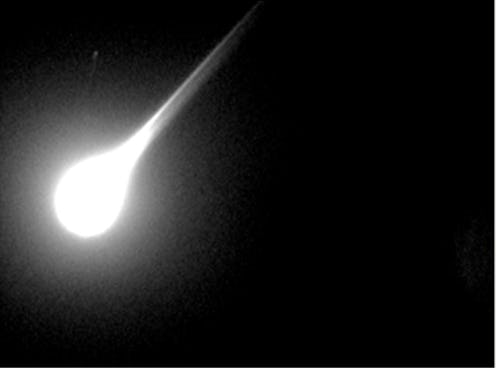News
A Meteorite Slammed Into Nicaragua's Capital
No, this didn't happen on the The Leftovers finale: A meteorite smashed into the Nicaraguan capital of Managua on Sunday night, creating a 39-foot-wide crater near the city's international airport. Miraculously, no one was reported injured, even though the meteorite rocked the entire city. The airport was also spared any damage, though Nicaraguan officials still have this whole crater situation to deal with.
According to The New York Times, residents of the Nicaraguan capital — which is home to more than a million people — heard a roaring boom on Sunday night when the meteorite stuck. "We thought it was a bomb because we felt an expansive wave," Managua resident Jorge Santamaria told The Times.
Although residents didn't see anything in the sky, seismic waves were felt throughout the city. The Nicaraguan Institute of Earth Studies' seismic sensors, which are typically used to track earthquakes, picked up the meteorite on impact.
Officials from the institute told Reuters that they're sure it was a meteorite that hit the city, and not some other foreign object that fell from the sky:
All the evidence that we've confirmed on-site corresponds exactly with a meteorite and not with any other type of event. ... Firstly, we have the seismic register which coincides with the time of impact, and the typical characteristic that it produces a cone in the place of impact.
So, how did this meteorite make it to Managua, anyway? According to Nicaraguan government officials, the meteorite may have broken off from an asteroid that was soaring through space over the weekend. Called RC 2014, the asteroid was reportedly 20 meters in diameter — or about 66 feet, which is the size of a house — and was within 25,000 miles of Earth when it cruised through our solar system.
Although the asteroid passed over Earth, 25,000 miles is still pretty far. To put it in perspective, the International Space Station floats about 260 miles away from Earth. However, astronomy experts say RC 2014 still flew dangerously close to Earth — perhaps a bit too close for comfort.
"We have the evidence these meteors have, and will continue to, hit our planet," former astronaut Ed Lu told ABC News. "What we need to do is find them first, and alter their orbit."
In February 2013, another asteroid zoomed by Earth, just 17,000 miles away. The asteroid caused a 65-foot meteor to hit Chelyabinsk, Russia, injuring at least 1,200 people and blowing out the windows in thousands of apartments throughout the large city.
